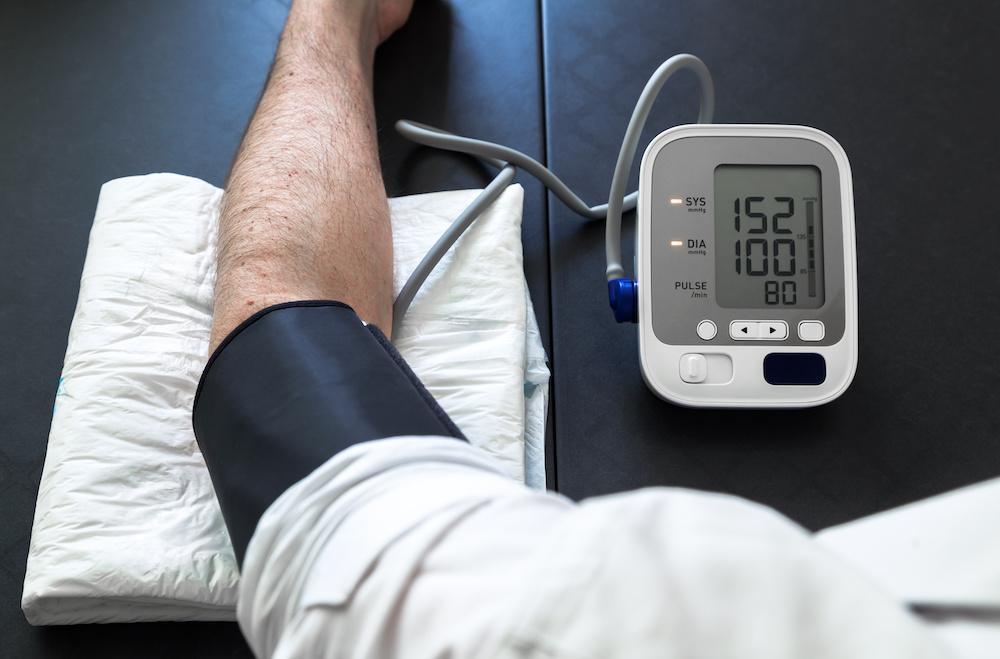Why Hypertension Is A Major Public Health Concern?

Hypertension, or high blood pressure, is a prevalent and significant public health concern worldwide. The condition affects individuals of all ages and socioeconomic backgrounds, and its consequences are far-reaching.
This article aims to explore the reasons why hypertension is a major public health concern. It will delve into the understanding of hypertension, including its risk factors and associated health complications. Additionally, the importance of effective blood pressure management through lifestyle modifications and medical interventions will be highlighted.
Moreover, the role of public health initiatives and awareness campaigns in addressing hypertension will be discussed. Furthermore, the article will explore the challenges in addressing health disparities related to hypertension and the need for collaborative efforts to combat this issue.
By examining the current state of hypertension and its implications for public health, this article aims to provide insights into the importance of addressing this condition and promoting preventive measures.
Key Takeaways
- Hypertension is a prevalent worldwide condition that affects individuals of all ages and socioeconomic backgrounds.
- It is a risk factor for heart disease, stroke, and kidney failure.
- Lifestyle modifications, regular blood pressure screenings, and early intervention are crucial for prevention and management.
- Hypertension can lead to complications such as increased risk of cardiovascular diseases, stroke, and kidney damage.
Understanding Hypertension
Understanding hypertension is crucial in recognizing its impact as a major public health concern.
Hypertension, also known as high blood pressure, is a common cardiovascular condition characterized by elevated blood pressure levels. It is a significant risk factor for various complications, including heart disease, stroke, and kidney failure.
The causes of hypertension can be diverse, including genetic factors, lifestyle choices, such as poor diet and lack of physical activity, and underlying medical conditions.
Prevention plays a crucial role in managing hypertension. Lifestyle modifications, such as adopting a healthy diet rich in fruits and vegetables, regular exercise, maintaining a healthy weight, limiting alcohol consumption, and avoiding smoking, can help prevent hypertension.
Additionally, regular blood pressure screenings and early intervention are essential for identifying and managing hypertension effectively.
Overall, understanding the causes and prevention strategies of hypertension is paramount in addressing this major public health concern.
Risk Factors for Hypertension
This paragraph will discuss the risk factors for hypertension, including lifestyle factors, genetic factors, age, and gender.
Lifestyle factors such as poor diet, lack of physical activity, and smoking have been identified as significant contributors to the development of hypertension.
Genetic factors, including a family history of hypertension, can also increase a person’s risk.
Additionally, age and gender play a role, with older individuals and males being more likely to develop hypertension.
Lifestyle Factors
Lifestyle choices, such as sedentary behavior and unhealthy dietary patterns, contribute significantly to the prevalence of hypertension, painting a picture of a society plagued by the consequences of modern living. Adopting healthy habits, including regular physical activity and a balanced diet, can play a crucial role in preventing and managing hypertension. Engaging in at least 150 minutes of moderate-intensity aerobic exercise per week and reducing sodium and saturated fat intake are recommended strategies. Additionally, stress management techniques, such as meditation or relaxation exercises, can help mitigate the impact of stress on blood pressure.
| Healthy Habits | Stress Management |
|---|---|
| Regular exercise | Meditation |
| Balanced diet | Relaxation exercises |
| Sodium reduction | |
| Limiting saturated fat intake |
By incorporating these lifestyle modifications, individuals can significantly lower their risk of developing hypertension and improve their overall cardiovascular health. Public health interventions should focus on promoting these lifestyle changes to tackle the growing burden of hypertension in society.
Genetic Factors
Genetic factors play a significant role in the development and progression of hypertension, providing valuable insights into the complex interplay between biological mechanisms and blood pressure regulation.
Genetic testing has revealed that certain genes are associated with an increased risk of developing hypertension. For instance, variations in genes involved in the renin-angiotensin-aldosterone system, which regulates blood pressure, have been linked to hypertension.
Additionally, studies have shown that a family history of hypertension is a strong predictor of an individual’s risk for developing the condition. This hereditary influence highlights the importance of genetic factors in understanding and managing hypertension.
Identifying individuals with a genetic predisposition to hypertension may help implement early interventions and personalized treatment strategies. Furthermore, genetic research provides a basis for developing targeted therapies that can address the specific biological mechanisms underlying hypertension, contributing to better management and control of this major public health concern.
Age and Gender
Age and gender are important factors to consider in the understanding and management of hypertension, as they contribute to the complex nature of blood pressure regulation. Age-related hypertension refers to the increase in blood pressure with advancing age. As individuals get older, their blood vessels become less elastic, and their arteries may become narrower, leading to higher blood pressure.
This age-related rise in blood pressure is a significant public health concern, as it increases the risk of cardiovascular disease and other complications.
Furthermore, gender disparities exist in hypertension prevalence. In general, men tend to have higher blood pressure than women until women reach menopause, after which their risk becomes similar to men. The reasons for these gender differences are not fully understood, but hormonal factors, differences in lifestyle behaviors, and genetic predisposition may all play a role.
Recognizing and addressing these age and gender disparities is crucial for effective hypertension management and reducing its burden on public health.
Health Complications Associated with Hypertension
This paragraph will discuss the health complications associated with hypertension, specifically cardiovascular diseases, stroke, and kidney damage.
Hypertension is strongly linked to an increased risk of developing cardiovascular diseases, such as heart attack and heart failure.
Additionally, individuals with hypertension are at a higher risk of experiencing a stroke, which can result in long-term disability or even death.
Furthermore, hypertension can lead to kidney damage, contributing to the development of chronic kidney disease and potentially requiring dialysis or kidney transplantation.
Cardiovascular Diseases
Cardiovascular diseases pose a significant public health concern due to their high prevalence and profound impact on morbidity and mortality rates. Hypertension, a major risk factor for cardiovascular diseases, contributes to the development and progression of various complications. Effective management of hypertension is crucial in reducing the burden of cardiovascular diseases.
Hypertensive individuals are more susceptible to developing conditions such as coronary artery disease, heart failure, stroke, and peripheral artery disease. These cardiovascular complications can lead to severe health consequences, including disability and premature death.
Implementing appropriate strategies for cardiovascular risk assessment and hypertension treatment is essential to prevent and control the occurrence of cardiovascular diseases. Public health interventions aimed at raising awareness, promoting healthy lifestyle modifications, and ensuring access to quality healthcare services are necessary to address this major public health concern.
Stroke
Stroke is a debilitating condition that can result in long-term disability and is associated with a high mortality rate. It occurs when blood flow to the brain is interrupted, leading to brain cell damage or death. Stroke prevention is crucial in reducing the burden of this condition. To evoke emotion in the audience, consider the following alarming statistics:
1) Every two seconds, someone in the world suffers a stroke, amounting to 15 million strokes each year.
2) Stroke is the second leading cause of death globally and the leading cause of disability.
3) Around 80% of strokes can be prevented through lifestyle modifications, such as managing hypertension and maintaining a healthy diet.
Rehabilitation strategies play a crucial role in helping stroke survivors regain functionality and improve their quality of life. Physical therapy, speech therapy, and occupational therapy are commonly used methods to facilitate recovery and promote independence.
Implementing effective stroke prevention and rehabilitation strategies is essential to address this major public health concern.
Kidney Damage
Hypertension, also known as high blood pressure, has been identified as a major public health concern due to its association with various complications.
In the previous subtopic, we discussed the link between hypertension and stroke.
Now, let us delve into another serious consequence of hypertension: kidney damage. The kidneys play a crucial role in maintaining fluid balance, regulating blood pressure, and filtering waste products from the blood.
However, prolonged high blood pressure can impair kidney function and lead to chronic kidney disease. It is estimated that approximately one-third of all cases of chronic kidney disease are attributed to hypertension.
Moreover, the prevalence of hypertension is alarmingly high, affecting millions of individuals worldwide. Understanding the impact of hypertension on kidney function and its high prevalence is essential for addressing this significant public health issue.
The Importance of Blood Pressure Management
This paragraph discusses the importance of blood pressure management and highlights three key points: regular monitoring, healthy lifestyle changes, and medication and treatment options.
Regular monitoring of blood pressure is crucial in managing hypertension as it allows individuals and healthcare professionals to track changes and adjust treatment plans accordingly.
Additionally, adopting a healthy lifestyle, such as maintaining a balanced diet and engaging in regular exercise, can significantly contribute to the management of blood pressure levels.
Lastly, medication and treatment options should be considered in cases where lifestyle modifications alone are not sufficient in controlling hypertension.
Regular Monitoring
Regular monitoring of blood pressure is essential in managing hypertension and preventing further complications. Regular check-ups allow healthcare professionals to assess the effectiveness of treatment and make necessary adjustments.
By monitoring blood pressure regularly, individuals can stay aware of any changes and take timely action. This is crucial because hypertension often has no noticeable symptoms, making regular monitoring even more important.
Additionally, regular check-ups provide an opportunity for healthcare providers to educate patients about lifestyle modifications that can help control blood pressure. These modifications may include adopting a healthy diet, increasing physical activity, reducing salt intake, managing stress, and limiting alcohol consumption.
Regular monitoring not only helps individuals stay on top of their blood pressure levels but also empowers them to make necessary lifestyle changes to manage hypertension effectively.
Healthy Lifestyle Changes
Adopting a healthy lifestyle can play a crucial role in effectively managing blood pressure and reducing the risk of complications.
One important aspect of a healthy lifestyle is maintaining a balanced and nutritious diet. Consuming a diet rich in fruits, vegetables, whole grains, lean proteins, and low-fat dairy products can contribute to lower blood pressure levels. Additionally, limiting the intake of sodium, saturated fats, and added sugars can further support a healthy blood pressure.
Engaging in regular physical activity is another key component of a healthy lifestyle. Regular exercise, such as brisk walking, swimming, or cycling, can help lower blood pressure and improve overall cardiovascular health. It is recommended to aim for at least 150 minutes of moderate-intensity aerobic activity or 75 minutes of vigorous-intensity aerobic activity per week.
By adopting these healthy lifestyle changes, individuals can effectively manage their blood pressure and reduce the risk of complications associated with hypertension.
Medication and Treatment Options
Medication and treatment options offer individuals with high blood pressure the opportunity to effectively manage their condition and reduce the risk of associated complications, providing hope for improved cardiovascular health. To achieve optimal results, patients can consider the following options:
- Antihypertensive medications: These drugs work by reducing blood pressure levels and can include diuretics, beta-blockers, ACE inhibitors, angiotensin II receptor blockers, calcium channel blockers, and others. However, it is important to note that these medications may have side effects such as dizziness, fatigue, and gastrointestinal issues. Regular monitoring and dosage adjustments may be necessary.
- Lifestyle modifications: In addition to medication, adopting a healthy lifestyle can significantly contribute to managing hypertension. This includes regular exercise, a balanced diet low in sodium and high in fruits and vegetables, weight management, stress reduction, and limiting alcohol and tobacco consumption.
- Alternative therapies: Some individuals may explore alternative therapies such as acupuncture, meditation, and herbal supplements. While these therapies may provide symptom relief for some individuals, their effectiveness in treating hypertension is still being researched, and they should not replace conventional medical treatment.
By considering these medication and treatment options, individuals with high blood pressure can actively participate in their management, reducing the risk of complications and improving their overall cardiovascular health.
The Role of Diet and Exercise in Hypertension Prevention
Incorporating appropriate dietary choices and engaging in physical activity play pivotal roles in preventing hypertension. Various dietary interventions have been shown to effectively lower blood pressure levels. The Dietary Approaches to Stop Hypertension (DASH) diet, for instance, emphasizes the consumption of fruits, vegetables, whole grains, lean proteins, and low-fat dairy products, while limiting sodium, saturated fats, and added sugars. This balanced diet has been associated with significant reductions in blood pressure. Additionally, reducing sodium intake to less than 2,300 mg per day and increasing potassium intake through the consumption of fruits and vegetables can further aid in blood pressure management.
In terms of exercise recommendations, engaging in regular physical activity can significantly lower blood pressure. Aerobic exercises such as brisk walking, jogging, swimming, or cycling, performed for at least 150 minutes per week, are highly recommended. Strength training exercises that target major muscle groups should also be incorporated twice a week. These exercise interventions have been shown to effectively reduce blood pressure levels and promote overall cardiovascular health.
| Key Points | Emotional Response |
|---|---|
| Dietary interventions | Promotes a sense of control and empowerment over one’s health |
| Exercise recommendations | Inspires motivation and enthusiasm towards physical activity |
| Blood pressure management | Provides reassurance and hope for improved health outcomes |
Public Health Initiatives and Awareness Campaigns
This paragraph will discuss the various public health initiatives and awareness campaigns that are aimed at addressing hypertension.
These initiatives include screening programs, education and outreach efforts, as well as policy changes and regulations.
Screening programs help identify individuals who may be at risk for hypertension and allow for early intervention.
Education and outreach efforts aim to raise awareness about the importance of a healthy lifestyle and the prevention of hypertension.
Policy changes and regulations can help create an environment that supports healthy choices and reduces the prevalence of hypertension.
Screening Programs
Screening programs for hypertension have proven to be an effective strategy in identifying individuals at risk and providing early interventions to reduce the burden of the disease. These programs aim to detect high blood pressure in individuals who may be unaware of their condition, allowing for timely management and prevention of complications.
The effectiveness of screening programs lies in their ability to identify individuals with hypertension, initiate appropriate treatment, and provide education on lifestyle modifications. Community engagement plays a crucial role in the success of these programs, as it fosters awareness and encourages participation.
To enhance their impact, screening programs often incorporate the following components:
- Outreach activities to raise awareness about hypertension and the importance of screening.
- Mobile health units to reach underserved populations and remote areas.
- Collaboration with healthcare providers to ensure accurate diagnosis and follow-up care.
- Integration of screening services into routine primary care visits to increase accessibility.
By implementing these strategies, screening programs contribute significantly to the prevention and management of hypertension, ultimately addressing the major public health concern it poses.
Education and Outreach Efforts
Education and outreach efforts play a pivotal role in disseminating information and fostering community engagement to raise awareness about the prevention and management of hypertension. Through education initiatives, individuals are empowered with knowledge about the risk factors, symptoms, and consequences of hypertension. Community outreach programs provide platforms for healthcare professionals to interact with the public, offering screenings, counseling, and resources for hypertension prevention and management. These efforts aim to reduce the incidence and burden of hypertension by promoting healthy lifestyle choices, such as regular exercise, a balanced diet, and stress management. By targeting diverse populations, education and outreach programs ensure that individuals from different backgrounds have access to vital information and resources. Through these initiatives, communities can work together to prevent and manage hypertension, ultimately improving public health outcomes.
| Education Initiatives | Community Outreach |
|---|---|
| Public lectures | Health fairs |
| Workshops | Mobile clinics |
| Online resources | Community partnerships |
| School programs | Support groups |
| Healthcare professional training | Public service announcements |
Policy Changes and Regulations
Education and outreach efforts have undoubtedly played a crucial role in raising awareness about hypertension and its associated risks. However, addressing this major public health concern requires more than just disseminating information. It necessitates policy changes and regulations to effectively control and manage hypertension at a population level.
Policy implementation plays a vital role in ensuring that appropriate strategies are in place to prevent and control hypertension, while regulatory compliance ensures that these policies are followed by healthcare professionals and organizations.
By implementing policies such as the promotion of healthy lifestyles, increased access to healthcare services, and the regulation of salt and tobacco consumption, governments can effectively combat the rising burden of hypertension.
Regulatory compliance ensures that these policies are adhered to, leading to better control and prevention of hypertension and its associated complications.
Addressing Health Disparities in Hypertension
Addressing health disparities in hypertension requires a multifaceted approach that encompasses community outreach, culturally sensitive interventions, and equitable access to comprehensive healthcare services. Healthcare access plays a crucial role in reducing disparities as individuals with limited access to healthcare may face challenges in managing their hypertension. Cultural barriers, such as language differences and cultural beliefs, can also hinder effective management of hypertension. To address these issues, community outreach programs can educate individuals about the importance of blood pressure control and provide resources for accessing healthcare services. Culturally sensitive interventions, such as language interpretation services and culturally tailored educational materials, can help overcome language and cultural barriers. Additionally, ensuring equitable access to comprehensive healthcare services, including regular blood pressure screenings and affordable medications, is essential for reducing disparities in hypertension outcomes.
| Healthcare Access | Cultural Barriers |
|---|---|
| Limited access to healthcare services can hinder effective management of hypertension. | Language differences and cultural beliefs can create barriers to blood pressure control. |
| Community outreach programs can help individuals access healthcare services and resources. | Culturally tailored interventions, such as language interpretation services, can overcome language barriers. |
| Ensuring equitable access to comprehensive healthcare services is vital for reducing disparities in hypertension outcomes. | Education and awareness programs can address cultural beliefs that may impede effective hypertension management. |
Collaborative Efforts and Future Directions
This paragraph discusses the collaborative efforts and future directions in addressing health disparities in hypertension.
Firstly, a multidisciplinary approach to hypertension management is crucial in order to effectively address the complex nature of this public health concern. This involves involving healthcare professionals from various disciplines, such as physicians, nurses, dietitians, and pharmacists, to provide comprehensive care and support to individuals with hypertension.
Secondly, research and innovation play a key role in improving hypertension management by identifying novel strategies and interventions. This includes developing new medications, technology-based interventions, and behavioral interventions to improve adherence to treatment plans.
Lastly, global health strategies are necessary to address health disparities in hypertension on a global scale. This involves collaboration between different countries, organizations, and stakeholders to share knowledge, resources, and best practices in hypertension management.
Multidisciplinary Approach to Hypertension Management
The implementation of a multidisciplinary approach in the management of hypertension has shown promising results in improving patient outcomes and reducing the burden of this condition on public health. By adopting a holistic approach that considers the various factors contributing to hypertension, healthcare providers can address the complex nature of this condition more effectively.
This approach involves collaboration between healthcare professionals from different disciplines, such as physicians, nurses, dietitians, and pharmacists, who work together to develop personalized treatment plans for patients. In addition to conventional medical interventions, alternative therapies such as lifestyle modifications, stress management techniques, and complementary therapies like acupuncture and yoga may also be incorporated into the treatment plan.
This multidisciplinary approach not only considers the physical aspects of hypertension but also takes into account the psychological and social factors that can influence blood pressure control. By addressing hypertension in a comprehensive manner, the multidisciplinary approach has the potential to improve patient outcomes and enhance public health.
Research and Innovation
Research and innovation in the field of hypertension management have contributed to the development of novel strategies and technologies that aim to optimize patient outcomes and reduce the burden of this condition on society. These advancements have been made possible through research funding and technological advancements.
The following list highlights the emotional impact of these advancements:
- Improved patient monitoring: Research funding has enabled the development of wearable devices and mobile applications that allow patients to track their blood pressure and receive real-time feedback. This empowers individuals to take control of their health and promotes a sense of reassurance and security.
- Targeted treatment options: Technological advancements have led to the discovery of new drug therapies and interventions that specifically target the underlying mechanisms of hypertension. This offers hope to patients who may have previously struggled to find effective treatment options and instills a sense of optimism for improved health outcomes.
- Enhanced healthcare delivery: Research and innovation have facilitated the integration of telemedicine and remote monitoring into hypertension management. This enables healthcare providers to deliver personalized care to patients in remote or underserved areas, reducing healthcare disparities and fostering a sense of inclusivity and access to quality healthcare.
Global Health Strategies
Global health strategies play a pivotal role in addressing the challenges and disparities in the management and prevention of hypertension worldwide. These strategies involve the development and implementation of public health initiatives aimed at reducing the burden of hypertension on a global scale.
One such initiative is the promotion of healthy lifestyles, including regular physical activity, a balanced diet, and smoking cessation.
Additionally, global health strategies focus on improving access to healthcare services and medications for individuals with hypertension, particularly in low- and middle-income countries where resources may be limited.
Furthermore, these strategies emphasize the importance of early detection and screening programs to identify individuals at risk and provide timely interventions.
By adopting comprehensive and evidence-based global health strategies, the public health community can effectively address the growing concern of hypertension and reduce its impact on individuals and societies worldwide.
Frequently Asked Questions
What are the symptoms of hypertension?
Common symptoms of hypertension include headaches, dizziness, blurred vision, and chest pain. However, it is often asymptomatic, making regular blood pressure monitoring crucial. Complications may arise, such as heart disease and stroke. Risk factors include obesity, smoking, and a sedentary lifestyle.
How is hypertension diagnosed?
Hypertension is diagnosed by measuring blood pressure using a sphygmomanometer. It is important to identify the causes of hypertension, as it can have a significant impact on overall health, leading to cardiovascular diseases and other complications.
What are the different stages of hypertension?
Hypertension is classified into different stages based on blood pressure readings. These stages include normal blood pressure, elevated blood pressure, stage 1 hypertension, and stage 2 hypertension. Hypertension management often involves lifestyle modifications such as a healthy diet and regular exercise.
Can hypertension be cured?
Hypertension cannot be cured, but it can be effectively managed and treated. Hypertension treatment focuses on lifestyle modifications, such as diet and exercise, and may include medication to lower blood pressure and reduce the risk of complications.
Are there any alternative treatments for hypertension?
Acupuncture therapy and herbal remedies are alternative treatments for hypertension. While their effectiveness may vary, studies suggest that acupuncture can help lower blood pressure, and certain herbal remedies may have antihypertensive properties.









